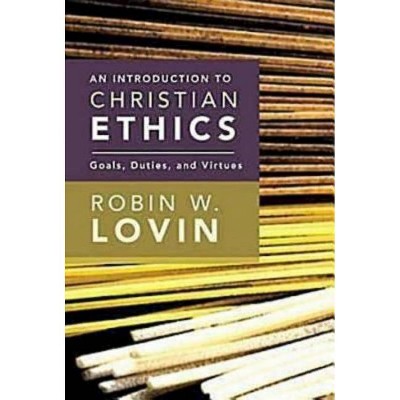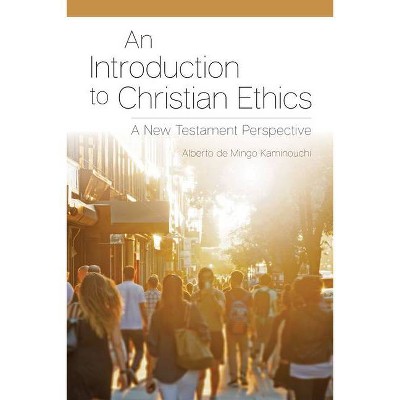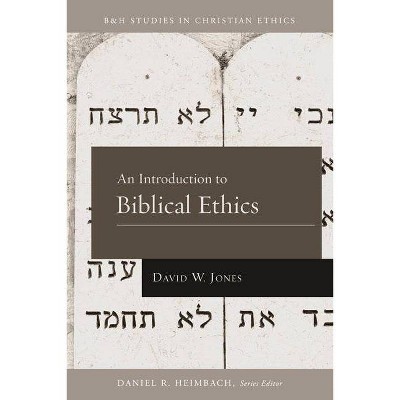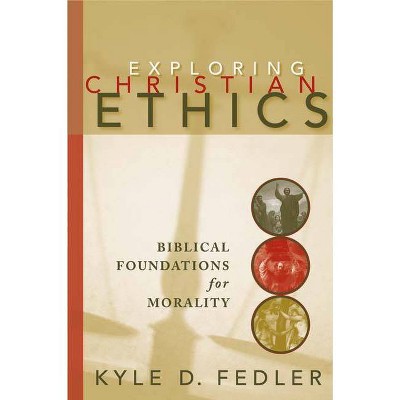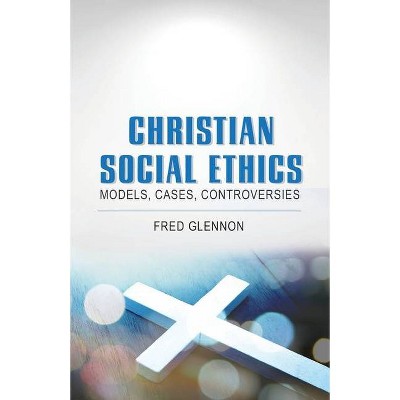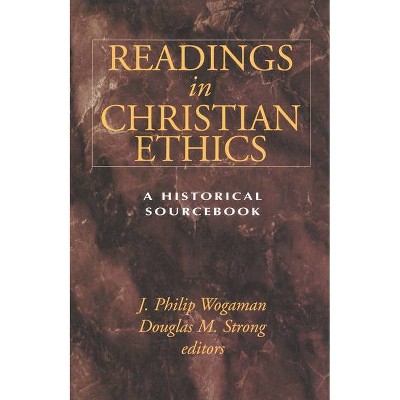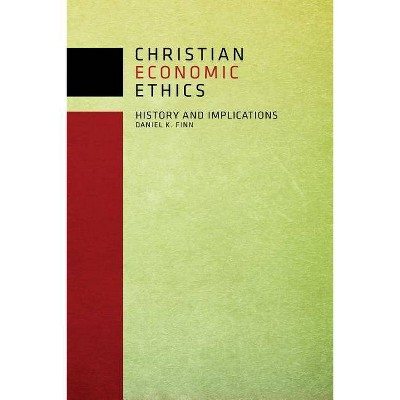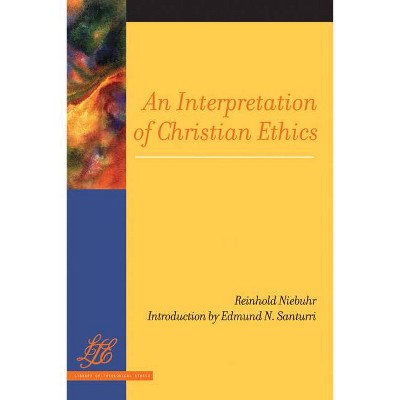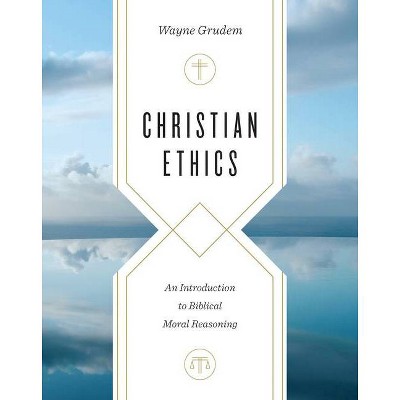Introduction to Christian Ethics - by Ellen Ott Marshall (Paperback)
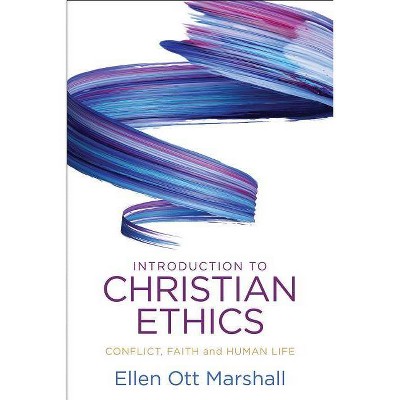
Similar Products
Products of same category from the store
AllProduct info
<p/><br></br><p><b> About the Book </b></p></br></br>All Christians read the Bible differently, pray differently, value their traditions differently, and give different weight to individual and corporate judgment. These differences are the basis of conflict.<p/><br></br><p><b> Book Synopsis </b></p></br></br><p>All Christians read the Bible differently, pray differently, value their traditions differently, and give different weight to individual and corporate judgment. These differences are the basis of conflict. The question Christian ethics must answer, then, is, "What does the good life look like in the context of conflict?"</p><p>In this new introductory text, Ellen Ott Marshall uses the inevitable reality of difference to center and organize her exploration of the system of Christian morality.</p> <ul> <li>What can we learn from Jesus' creative use of conflict in situations that were especially attuned to questions of power?</li> <li>What does the image of God look like when we are trying to recognize the divine image within those with whom we are in conflict?</li> <li>How can we better explore and understand the complicated work of reconciliation and justice?</li> </ul> <p><br /> This innovative approach to Christian ethics will benefit a new generation of students who wish to engage the perennial questions of what constitutes a faithful Christian life and a just society.</p><p/><br></br><p><b> Review Quotes </b></p></br></br><br><p>"By acknowledging that conflict is at the heart of the human experience, Marshall offers a radically new and innovative approach to the task of Christian ethics, one that offers creative possibilities for deepening moral reflection. Imaginative, impassioned, practical, and imminently accessible, this book is an essential read." - Rebecca Todd Peters, Professor of Religious Studies and Director, Poverty and Social Justice Program, Elon University</p><br><br><p>"Ellen Ott Marshall's new <em>Introduction to Christian Ethics </em>is grounded in the novel and timely claim that 'to study Christian ethics is to study conflict.' Deploying a methodology which is contextual, feminist, and Wesleyan, she masterfully explores major theological affirmations and methodological claims of Christian ethics through examples and case studies, all of which return again and again to conflict. This is an introductory text pitched as overview and demonstration, as illustrative, humble, and self-revealing rather than comprehensive, proud, and distant. Marshall claims that 'one cannot pursue the Kingdom of God without entering into conflict.' She is absolutely right, and this introductory textbook, helps us understand why. Highly recommended." -David P. Gushee, Distinguished University Professor of Christian Ethics and Director, Center for Theology & Public Life, Mercer University; author of <em>Still Christian: Following Jesus Out of American Evangelicalism </em></p><br><br><p>"In a moment when the public meaning of Christianity and Christian moral responsibility couldn't be more contested comes this excellent text by Ellen Ott Marshall. <em>Introduction to Christian Ethics</em>brings us on a journey of careful critical thinking rooted in clear methodology so we may engage the urgent collective question "how do we live the good life in the midst of conflict?" Marshall doesn't merely ensure her readers take seriously tradition, reason, texts and contexts; she also demonstrates that our engagement of such must include critique and reconstruction for the sake of justice and social transformation. She ably demonstrates how these are part of the social-ethical mission at the heart of the Christian tradition. I am eager to use this work with my own students and excited about what it will enable them to go forth and be and do in the world." -Jennifer Harvey, Professor of Religion, Drake University</p><br><br><p>If you have been looking for an innovative text to teach introductory Christian ethics, then Ellen Ott Marshall's new book is it. "How do we live the good life in the midst of ongoing conflict?" Marshalluses conflict as an interpretive lens to explicate and rethink theological concepts, such as imago Dei, sin, and reconciliation and ethical theories, such as teleology, deontology and responsibility. Her keen scholarly insights are also practical insights drawn from experiences of conflict in church and society. With this book, Professor Marshall provides a means to teach our students how to think ethically about and be moral agents who respond faithfully to the ongoing conflict of twenty-first century life in church and society. -- Marcia Y. Riggs, J. Erskine Love Professor of Christian Ethics, Columbia Theological Seminary</p><br>
Price History
Price Archive shows prices from various stores, lets you see history and find the cheapest. There is no actual sale on the website. For all support, inquiry and suggestion messagescommunication@pricearchive.us
